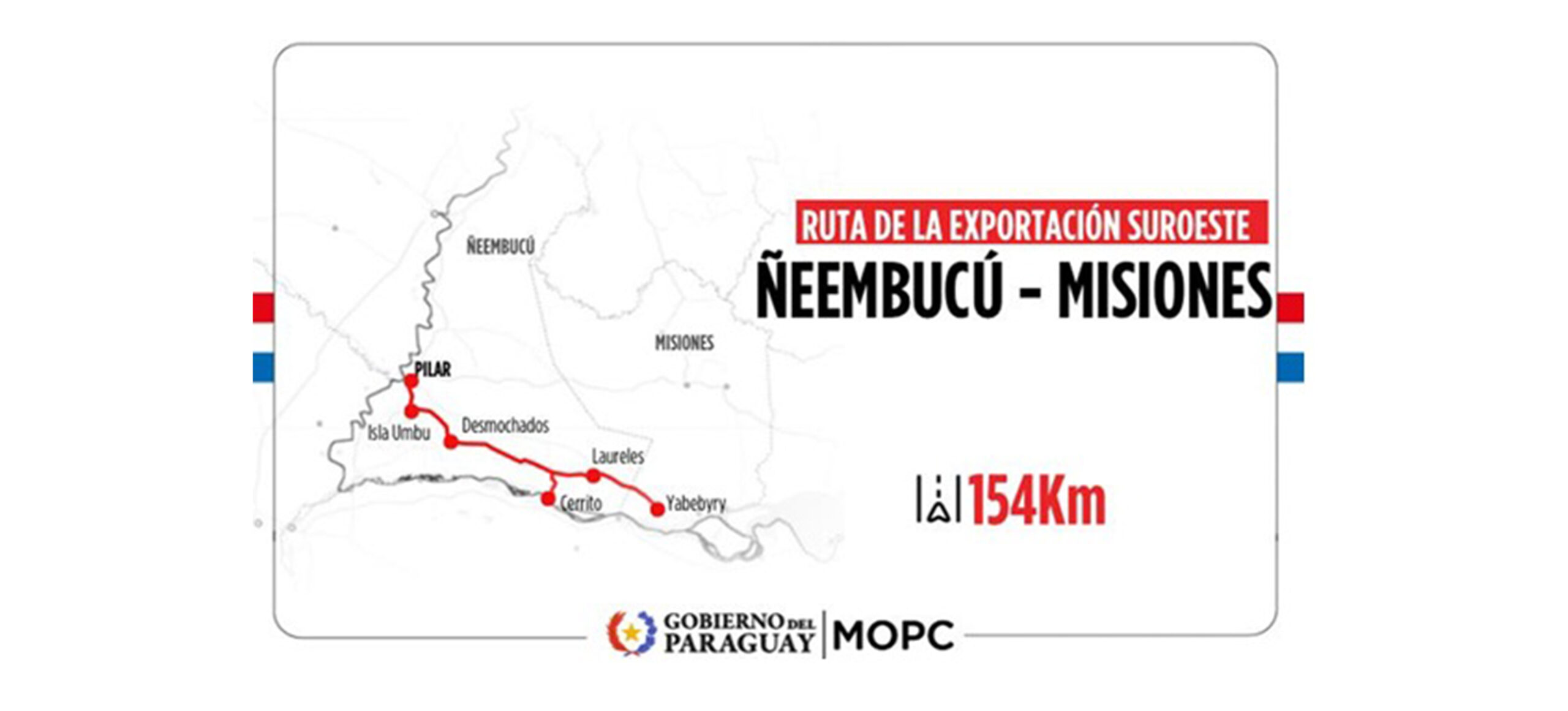Executive Summary
| OCTOBER – 2025 | ||
| Regulation | Date | Content |
| Decree No. 4754/2025 | October 10, 2025 | MERCOSUR Common Market Group (“GMC”) Resolutions No. 12/24 and No. 15/24 are incorporated into the national legal system, updating the NCM and the AEC. |
| Decree No. 4808/2025 | October 23, 2025 | MERCOSUR Trade Commission Directive No. 130/24 is incorporated into the national legal system. |
| Decree No. 4809/2025 | October 23, 2025 | MERCOSUR GMC Resolution No. 14/23 on the use of starches in very high moisture cheeses is incorporated. |
| Decree No. 4810/2025 | October 23, 2025 | MERCOSUR GMC Resolution No. 48/23 on provisions for metal containers, coatings, utensils, lids, and equipment in contact with food is incorporated. |
| Decree No. 4811/2025 | October 23, 2025 | MERCOSUR GMC Resolution No. 22/24 is incorporated, with amendments to the NCM and AEC, and on the allocation of food additives for food category 1. |
| General Resolution No. 37/2025 | October 17, 2025 | Procedural deadlines in customs administrative proceedings are suspended due to office relocation. |
| Binding Consultation No. 752/2025 | October 2025 | How to document the assignment of credits and their subsequent collection for tax purposes. |
| Binding Consultation No. 757/2025 | October 2025 | Tax treatment of Transparent Legal Structures ("EJT"). |
| NOVEMBER – 2025 | ||
| Regulation | Date | Content |
| General Resolution No. 39/2025 | November 2025 | The customs administrations authorized to allow the entry of imported used vehicles are modified. |
| General Resolution No. 40/2025 | November 19, 2025 | The procedure for printing the Detailed Customs Declaration is established as of January 1, 2026. |
| Binding Consultation No. 668 | January 2025 | Restrictions on the importation for consumption of raw materials under the Pure Maquila regime. |
| DECEMBER – 2025 | ||
| Regulation | Date | Content |
| Decree No. 5181/2025 | December 23, 2025 | The real estate tax values for the tax base of the real estate tax and its surcharges are set for the 2026 fiscal year. |
| General Resolution No. 41/2025 | December 24, 2025 | Mandatory adherence to the National Integrated Electronic Invoicing System ("SIFEN") is established for government suppliers. |
| General Resolution No. 42/2025 | December 24, 2025 | The deadline for the application of penalties in the Cargo Management System is extended. |
OCTOBER – 2025
► Decree No. 4754/2025 – MERCOSUR GMC Resolutions No. 12/24 and No. 15/24 are incorporated into the national legal system.
The Executive Branch issued Decree No. 4754/2025, incorporating GMC Resolutions No. 12/24 and No. 15/24 into the national legal system, which update the MERCOSUR Common Nomenclature ("NCM") and its corresponding Common External Tariff ("AEC").
The decree fully incorporates these adjustments at the national level, allowing for their immediate application in both import operations and related customs procedures.
The decree introduces changes to several tariff headings, notably:
1. Revision of codes related to the chemical and industrial sector: Multiple subheadings in Chapter 39, corresponding to acrylic polymers and copolymers, are deleted and reorganized to bring them into line with the classification approved by MERCOSUR. Some subheadings are eliminated, while others are relocated or redefined based on more precise technical criteria.
2. Adjustments to the classification of pigments and dyes: Within Chapter 32, the subheadings referring to zirconium-based pigments and suspensions used in ceramic inkjet printers are being reorganized, incorporating new descriptions that allow for more accurate classification.
3. Changes in the classification of agri-food products: In Chapter 7, specifically with regard to the subheading for garlic, the reference to "garlic powder" is replaced by a broader classification — simply "garlic" — bringing this category into line with the amendments to the regional protocol.
4. Update of codes in the metals and machinery sector: The Resolution also modifies the classification of roller chains and certain electrical components, such as reactance coils. These modifications ensure that the description of goods matches regional standards and avoids divergent interpretations at the border.
In addition to incorporating the new MERCOSUR Resolutions, Decree 4754/2025 partially updates the annexes to Decrees No. 6897/2022 and No. 6898/2022, which regulate the national list of exceptions to the AEC and the tariff regime for MERCOSUR automotive and sugar products. These amendments seek to maintain consistency between local regulations and the new regionally approved classifications, avoiding duplication or contradictions in the current tariff annexes.
► Decree No. 4808/2025 – MERCOSUR Trade Commission Directive No. 130/24 is incorporated into the national legal system.
The Executive Branch issued Decree No. 4808/2025, which introduces adjustments to the AEC and the NCM to bring national regulations into line with recent decisions by the bloc. These amendments respond to the ongoing process of tariff harmonization within MERCOSUR, ensuring technical consistency, legal certainty, and predictability in foreign trade operations.
The decree formally incorporates GMC Resolution No. 27/24, which modifies various subheadings of the NCM and updates the tariffs applicable to certain goods, mainly within the chapters classified as "other products." Likewise, specific adjustments are introduced to the tariff annexes established by Decrees No. 6897/2022 and No. 6898/2022, which regulate the National List of Exceptions to the AEC and the tariff regime for automotive and sugar goods.
Decree 4808/2025 incorporates new descriptions and restructuring of tariff positions, allowing for a more accurate classification in line with technological advances and market changes. The update also harmonizes the rates applicable to various NCM codes, ensuring uniformity of tariffs within the bloc and avoiding border discrepancies between the Member States.
The annex contains the new specific rules for sectors as diverse as: a) chemicals and plastics, adjusting the origin requirements for numerous chemical compounds, plastics, and their manufactures; b) textiles and clothing, establishing the conditions for yarns, fabrics, and garments; c) machinery and equipment, updating the rules for electronic components and machinery for various industries; and d) various agricultural and industrial products.
► Decree No. 4809/2025 – MERCOSUR GMC Resolution No. 14/23 on the use of starches in very high moisture cheeses is incorporated into the national legal system.
Decree No. 4809/2025 incorporates an important MERCOSUR technical regulation on food. GMC Resolution No. 14/23, which establishes the "MERCOSUR Technical Regulation on the use of starches in very high moisture cheeses," is incorporated into the national legal system.
The regulation establishes the permissibility of the use of starches in certain dairy products, clearly and specifically defining the conditions under which this is possible:
Products affected: Cheeses with a moisture content greater than or equal to 55.0 g/100 g.
Type of cheese: Applies to cheeses that have been heat-treated and that, at the time of packaging, take the shape of their own container or wrapping.
Permitted ingredients: The use of starches and modified starches is permitted.
Maximum limit: The maximum proportion of starches allowed is 1% (m/m) of the final product.
► Decree No. 4810/2025 – MERCOSUR GMC Resolution No. 48/23 on provisions for metal containers, coatings, utensils, lids, and equipment in contact with food is incorporated into the national legal system.
Decree No. 4810/2025 incorporates MERCOSUR GMC Resolution No. 48/23 into the Paraguayan legal framework. This measure introduces significant adjustments to the MERCOSUR Technical Regulation on provisions for metal containers, coatings, utensils, and equipment that come into direct contact with food.
The most relevant change is in the list of metals and alloys permitted for the manufacture of equipment (such as tanks, silos, and pipes) used in the food industry. The use of stainless steel, aluminum alloys, iron, and cast steels for the processing, storage, and transport of dry foods (such as rice, cereals, legumes, and others) and tubers is explicitly confirmed.
The regulation also details the classification of tinplate (a common material for cans and containers), distinguishing between tinplate without polymer coating and tinplate with internal polymer coating, whether total or partial. On the other hand, the passivation process has been updated, specifying that it can be carried out with compounds of chromium, manganese, titanium, tin, and/or zirconium and their respective oxides or inorganic salts.
The industry should take note of the transition period established by the regulation. A period of 180 days is set for companies to comply with the new requirements, counted from the date of publication of the decree.
► Decree No. 4811/2025 – MERCOSUR GMC Resolution No. 22/24 is incorporated into the national legal system, with amendments to the NCM and the AEC, and on the assignment of food additives and processing aids for food category 1.
The Executive Branch issued Decree No. 4811/2025, incorporating amendments to the NCM and the AEC, pursuant to GMC Resolution No. 22/24. With this update, the country continues to adapt its tariff structure to the changes adopted in the bloc, ensuring the technical consistency necessary for the functioning of the customs union and providing greater legal certainty to foreign trade operators.
The regulations included in Decree No. 4811 apply directly to Food Category 1 - Dairy Products, focusing on the following subcategories: (i) Milk Powder and Cream Powder, establishing or modifying the lists of permitted additives and adjuvants; (ii) Fermented Milks, including yogurts and other fermented dairy products; and (iii) Cheeses, regulating the use of additives and adjuvants in the production of different types of cheeses.
The incorporated Resolution introduces adjustments to the description and structure of various NCM subheadings. The decree adopts these modifications in their entirety, replacing the previous version of the NCM in force in Paraguay. In addition, adjustments are introduced to the tariff annexes established by Decrees No. 6897/2022 and No. 6898/2022.
► General Resolution No. 37/2025 – Suspension of procedural deadlines in customs administrative proceedings.
Through General Resolution No. 37/2025, dated October 17, 2025, the National Tax Revenue Directorate ("DNIT") ordered the suspension of procedural deadlines in administrative proceedings before the Administrative Proceedings Coordination Unit (Departments 1 to 4) of the General Directorate of Customs Legal Affairs, during the period from October 21 to 24, 2025. The measure was due to the physical relocation of those offices to the DNIT Litoral Building (5th floor). The deadlines were automatically resumed on the following business day.
► Binding Consultation No. 752/2025 – How to document the assignment of credits.
The DNIT clarified how, from a tax perspective, credit assignment transactions between corporate income tax (IRE) taxpayers should be documented, as well as the treatment applicable to the subsequent collection of such credits by the assignee. In particular, questions were raised regarding the issuance of receipts, the reporting of income for Value Added Tax ("VAT") purposes, and the tax impact for both the assignor and the assignee, especially when the assignment is made at a discount and the collection includes interest or other ancillary items.
The Tax Administration concluded that the assignment of receivables, in itself, is exempt from VAT and must be documented by the assignor issuing an invoice, recording the amount assigned as an exempt transaction and reflecting any discount granted on the same receipt. From the IRE perspective, the income obtained by the assignor constitutes taxable income, with the costs associated with the transaction being deductible. For its part, the transferee must recognize the gain derived from the discount obtained as taxable income and document the collection of the credit by means of an invoice, adequately differentiating the amount of the credit acquired—exempt from VAT—from interest or other items that are taxable.
With regard to the subsequent collection of the credit, it is clarified that the assignee is responsible for issuing the corresponding invoice, even if the credit has been previously acquired through a documented assignment. On this point, it is essential to distinguish between the concepts involved: the collection of the assigned capital remains exempt from VAT, while interest, surcharges, commissions, or other accessories accrued subsequently constitute a provision of services and, consequently, are taxed at the general tax rate.
► Binding Consultation No. 757/2025 – Tax treatment of EJT.
In response to a binding consultation issued in October 2025, the DNIT established its position on the tax treatment of EJT. The consultation arose from questions raised regarding the tax treatment applicable to EJT, in particular to Equity Investment Funds, considering their nature as vehicles with a neutral tax effect on the IRE. In this context, clarification was required as to whether such tax neutrality also implied exemption from certain formal obligations, such as the filing of tax returns, financial statements, tax audits, bookkeeping, issuance of tax receipts, disclosure of VAT transactions, and treatment with respect to the Dividend and Profit Tax ("IDU").
The Tax Administration concluded that, although Transparent Legal Structures are not subject to IRE on their own behalf for the income they intermediate—which must be attributed to their beneficiaries—this does not exempt them from complying with the formal obligations provided for in current regulations. Consequently, EJT are required to file IRE tax returns, prepare financial statements, undergo tax audits when they exceed the legal thresholds, keep tax books, issue named sales receipts, properly report their transactions on the VAT form, and correctly apply the IDU regime only in the cases expressly provided for.
To reach this conclusion, the tax authority starts from the legal definition of EJT as instruments with a neutral tax effect on the IRE, clarifying that such neutrality is limited exclusively to the material aspect of the tax, without extending to formal obligations. Thus, even when no tax is payable, the regulations require the filing of an IRE tax return and the preparation of financial statements simply because they are registered in the general tax regime.
With regard to tax audits, it is reaffirmed that the obligation is determined exclusively on the basis of the level of annual turnover, regardless of the legal nature of the taxpayer or the tax actually determined. With regard to bookkeeping, a distinction is made between the accounting books required by commercial law and the tax books, which are mandatory in all cases.
With regard to the issuance of tax receipts, the obligation to document transactions is confirmed, noting that, in the case of investment funds subject to anti-money laundering regulations, the issuance of unnamed invoices is not appropriate, and counterparties must be properly identified.
In the area of VAT, the criteria for reporting exempt transactions and purchases related to such transactions are specified, clearly establishing the boxes that must be used in the tax return to reflect both exempt income and tax credits computable as cost.
Finally, with regard to the IDU, it is clarified that EJT are only subject to this tax when they receive profits or dividends as partners or shareholders of another generating entity and subsequently distribute them to their beneficiaries. Outside of this specific case, other income generated by these structures is not subject to the IDU and must be taxed, where applicable, at the level of the beneficiaries in accordance with the corresponding tax.
NOVEMBER – 2025
► General Resolution No. 39/2025 – Establishes the customs administrations for the entry of imported used vehicles to carry out the controls and procedures prior to customs clearance for importation.
Through General Resolution No. 39/2025, the DNIT introduced a specific amendment to General Resolution No. 24 of January 31, 2025, which established the specific customs administrations for the entry of imported used vehicles. The main objective of these procedures at the point of entry is to ensure compliance with prior controls, especially those relating to gas emissions.
The substantial change focuses on Article 2 of the original regulation. In essence, Resolution 39/25 grants discretionary power to the General Customs Administration ("GGA"). The GGA may now establish, on an exceptional basis, the authorization of Customs Administrations other than those already established for the control of used vehicles. This exception mechanism will be activated as long as two fundamental requirements are met:
(a) There must be a formal request submitted by the importer; and (b) prior approval from the competent technical area of the Ministry of Environment and Sustainable Development (“MADES”) is required.
The documentation must be submitted through the Single Window for Importers ("VUI"); this will also be used to receive notification of the results of the examinations carried out by the various institutions, such as MADES.
► General Resolution No. 40/2025 – Establishes the procedure for printing the Detailed Customs Declaration as of January 1, 2026.
Through General Resolution No. 40/2025, dated November 19, 2025, the DNIT established the new procedure for printing the Detailed Customs Declaration for Import or Export ("DDA").
As of January 1, 2026, the DDA will be available for printing directly from the DNIT computer system, only in cases where paper printing is required.
In this regard, Resolution DNA No. 41/2006 will be repealed as of January 1, 2026.
► Binding Consultation No. 668 – Restrictions on the importation for consumption of raw materials for subsequent processing and sale in the local market under the Pure Maquila regime.
Through Binding Consultation No. 668, issued in January 2025, the DNIT has provided essential clarification for companies operating under the Pure Maquila Regime, specifically regarding restrictions on maquiladoras importing raw materials for processing and subsequent sale on the Paraguayan market (IC04).
In this regard, the DNIT has indicated that imports of raw materials by maquiladoras for processing and sale in the local market are subject to strict compliance with Maquila regulations and are subject to authorization by the National Council of Maquila Export Industries ("CNIME").
Even if the import is initially made under a consumption regime (IC04), the final destination and the company's regime (Pure Maquila) require compliance with the specific rules of Law No. 1064/1997.
The DNIT emphasized that sales of finished products on the domestic market cannot exceed 10% (ten percent) of the total volume exported by the company in the last year. In addition, they must maintain the same controls and quality standards that apply to their export products.
Regarding the replacement of the regime and authorization, the DNIT stated that a maquiladora company that wishes to sell goods on the domestic market, entered under the Temporary Maquila Import Regime, must request the replacement of the regime with another Definitive Import regime. This request must be submitted to the CNIME and comply with all the requirements and procedures set forth in the Chapter on Approval Procedures and Appeals.
Applicable taxation: For local sales, the company must pay the applicable taxes for the nationalization of raw materials, taking as a reference the date of numbering of the temporary import shipment, and pay all internal taxes levied on such sales. The tax authority will establish the profitability coefficient for the payment of income tax on the percentage that will be sold on the domestic market.
In summary, even if an import for consumption is proposed, the "Pure Maquiladora" status subjects the company to a specific regulatory framework that requires prior management and authorization by the CNIME, in addition to the applicable taxes for the nationalization of raw materials.
DECEMBER – 2025
► Decree No. 5181/2025 – Setting the real estate tax values for the tax base of the real estate tax and its surcharges for the 2026 fiscal year.
Through Decree No. 5181/2025, the Executive Branch set the real estate tax values established by the General Directorate of the National Cadastre Service (“DGSNC”) of the Ministry of Economy and Finance, which will serve as the tax base for determining real estate tax and its surcharges for the 2026 fiscal year.
The adjustment represents a 4.1% increase in real estate values for both urban and rural properties, based on the year-on-year change in the CPI at the end of October 2025, as reported by the Central Bank of Paraguay.
It is important to remember that the amount of the tax is determined by applying the corresponding rates (normally 1%) to the tax valuation of the properties established by the DGSNC (tax base), which is made up as follows:
Urban properties: Land value (m² of the property per G/m²) plus building value (m² of the buildings per G/m²). The G/m² is determined by the type of pavement with the highest value of the streets adjacent (fronts) to the property for the land value, and by the construction category for the buildings.
Rural properties Land value (hectare ("ha") of the property per G/ha). The tax valuation of each district is determined according to its opportunity cost (distance to urban centers and accessibility) and the predominant soil type, according to the categories indicated in the decree.
It also provides, among other things, for the valuation of properties that change from urban to rural category and vice versa, the procedure for the 50% exemption from tax on rural properties with forestry priority or with real rights to forest land, and the discount for rural properties with unproductive areas that differ from the type of soil in their district.
For property owners in the capital, the most significant change is the creation of Urban Zone 16 (ZU16), which specifically covers the Historic Center of Asunción. This measure, coordinated with the Municipality of Asunción, seeks to encourage urban revitalization and heritage preservation through tax values appropriate to the current economic reality of this sector.
The amount of tax payable to the municipality can be consulted on the DGSNC website, in the municipalities section, property tax settlement section, by selecting the department of residence, the district, and the cadastral nomenclature of the property (register or current account).
► General Resolution No. 41/2025 – Electronic invoicing is made mandatory for government suppliers.
Through General Resolution No. 41/2025, the DNIT established a new mandatory framework for joining the SIFEN. This regulation specifically targets taxpayers who formalize contractual relationships with public sector agencies.
As of January 2, 2026, any taxpayer who signs a contract as a supplier, contractor, or consultant with the entities mentioned in Law No. 7021/2022 on Public Procurement and Contracting will be automatically required to join SIFEN. The deadline for complying with this transition is immediate, with membership becoming effective on the day following the signing of the respective contract.
A key aspect of this resolution is that the obligation to operate under the electronic system persists even if the taxpayer subsequently loses their status as a supplier or consultant to the State. In addition, the regulation clarifies that this requirement takes precedence over previous implementation schedules; if a taxpayer had a later date of adherence set by another regulation but signs a public contract before that deadline, the obligation is automatically brought forward by at least one point of issuance.
It is important to note that contracts for the provision of personal services regulated by civil service laws are exempt from this provision. For the rest of those affected, the resolution contemplates the possibility of requesting a one-time exceptional extension for electronic issuance, which will be subject to technical analysis by the tax authority after the submission of the corresponding documentation.
With the entry into force of this resolution, Article 7 of General Resolution DNIT No. 21/2024 is repealed, thus unifying the criteria and deadlines for all actors involved in public procurement, with a view to strengthening traceability and transparency in the management of State resources.
► General Resolution No. 42/2025 – The deadline for the application of sanctions in the Cargo Management System is extended.
Through General Resolution No. 42/2025, the DNIT extended the adaptation period for the implementation of the new Cargo Management System. This measure modifies what was originally established in DNIT General Resolution No. 04/2024, specifically with regard to the Advance Electronic Transmission of Air Cargo Manifests ("TEMA").
The deadline for the application of penalties for violations related to this system is extended until July 31, 2026. This extension responds to the technical complexity involved in the transition to the new customs processes, recognizing that economic operators require a reasonable amount of time to adjust their internal procedures without the risk of facing premature fines during this learning stage.
By postponing the penalty stage, the DNIT seeks to enable the Technology and Customs Processes Directorates to better coordinate operational mechanisms, allowing any errors arising from the novelty of the system to be analyzed more thoroughly before determining the existence of a violation.










